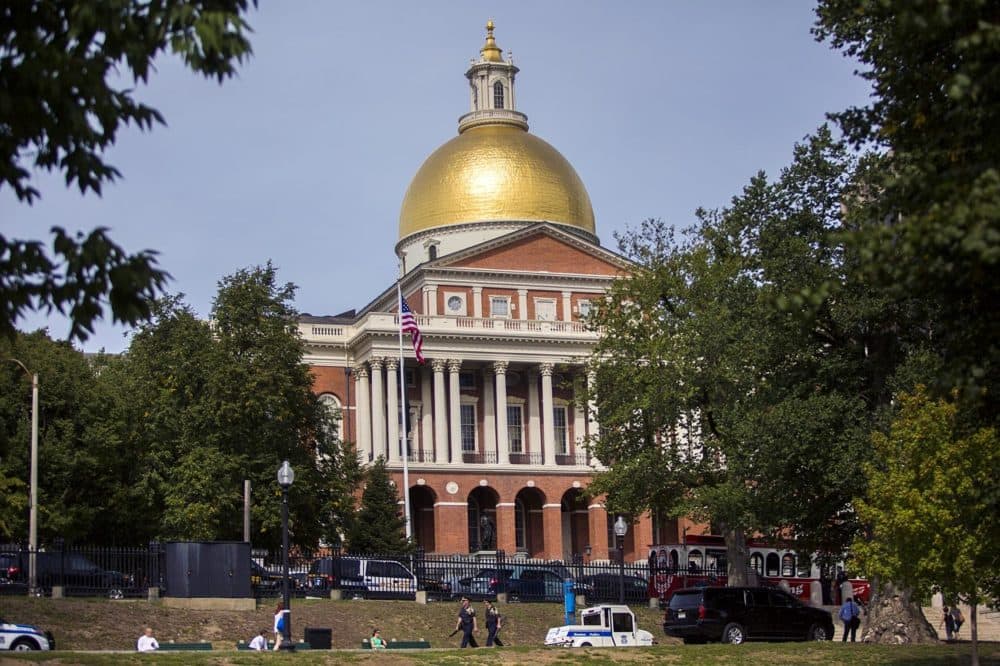Advertisement
Safety bills mix with calls for natural gas transition

Natural gas holds an important and debated place in the state's energy mix, and lawmakers on a key committee heard testimony Tuesday from an array of advocates calling on the Legislature to manage a transition away from gas but also to maintain the safety and reliability of existing natural gas infrastructure during that transition.
The Joint Committee on Telecommunications, Utilities and Energy (TUE) focused its hearing Tuesday on natural gas matters, but most of the testimony was in support of a bill (H 3298/S 2148) from Rep. Lori Ehrlich and Sen. Cynthia Creem that would require gas companies to begin shifting away from gas and towards renewable thermal energy.
Lawmakers also heard about a series of gas safety bills, like H 3354 from Lawrence Rep. Frank Moran and S 2166 from Sen. Jamie Eldridge.
Advocates and lawmakers repeatedly pointed Tuesday to the climate law that Gov. Charlie Baker signed in March, which commits Massachusetts to achieve net-zero carbon emissions by 2050 and requires interim emissions reduction goals between now and the middle of the century.
"Reaching that goal is going to require us to move buildings onto electric heat and off of gas, which will raise questions about the infrastructure that we have in place to deliver gas," Sen. Michael Barrett, the Senate co-chair of the TUE Committee, said. "And at the same time, of course, we're concerned about leaks from that infrastructure and somehow have to balance our weariness about continued investment with the necessity of maintaining public safety. Each year, at least so far, about 14,000 new leaks are detected in this infrastructure."
Ehrlich pointed out that heating and cooling of interior spaces accounts for about 27% of total carbon emissions statewide. She said her bill would lay out an "actionable plan to take that down considerably" through a shift from gas to renewable thermal energy.
"This bill is packed with incentives and directives so utilities can partner in providing clean renewable thermal energy," she said. Ehrlich added, "To incentivize utilities, low-interest gas transition bonds will be available to build non-emitting renewable thermal energy sources, replacing fossil fuel heating systems entirely by 2050. It also provides for training in new well-paying jobs installing geothermal piping and clean heating systems like heat pumps. It also helps low-income homeowners with the transition."
Massachusetts deals with some of the highest energy prices in the country and state leaders have largely gotten on the same page after years of being at odds over whether the state needs more natural gas pipeline capacity. The Baker administration previously expressed a desire to increase natural gas capacity into the New England region, but Attorney General Maura Healey and some Democratic lawmakers have argued for years that additional capacity is not a good solution to meet the state's longer-term energy demand needs.
The state's new climate law also calls for a municipal opt-in net-zero stretch energy code that addresses the use of gas in new buildings, and by next summer the administration is required to set 2025 emissions sublimits for various sectors, including commercial and residential heating and cooling, and natural gas distribution and service.
One year ago, regulators at the Department of Public Utilities opened a docket and issued an order requiring gas companies operating in Massachusetts to hire an independent consultant to lead a study of various ways that the companies might be able to help the state meet its legal requirement of getting to net-zero greenhouse gas emissions by 2050 while still protecting ratepayers and ensuring energy reliability. The order followed Healey's filing of an 18-page petition asking that DPU examine the future of the gas industry.
Each gas company is required by the DPU to use the consultant's analysis to develop a "proposal and plan for helping the Commonwealth achieve its 2050 climate goal," the department said. Those plans must be filed with the DPU by March 1, 2022.
And the safety of gas infrastructure has been top of mind for Massachusetts policymakers and residents since gas explosions and fires that rocked Lawrence, Andover and North Andover on Sept. 13, 2018. Columbia Gas, the natural gas provider in the area, pleaded guilty to a federal felony charge of violating a minimum safety standard in the federal Natural Gas Pipeline Safety Act, and saw its assets in Massachusetts sold off to Eversource Energy.
Rep. Christina Minicucci of North Andover testified Tuesday in support of a bill (H 3354) she filed with Rep. Frank Moran and Sen. Barry Finegold (S 2179) that she said "represents the triage component" of the "triage and transition" mantra embraced by advocacy groups.
"The key provisions are to prioritize safety in leak repair, to improve gas utility coordination with our municipalities, giving our municipalities a voice on how gas leaks are addressed in their communities, and to protect trees from gas leaks," she said.
Minicucci noted that the 2018 gas leaks and explosions in the Merrimack Valley were "directly related to gas pipe replacement, not to the fixing of gas leaks" and said gas utilities should focus on repairing hazardous leaks rather than replacing entire sections of pipe.